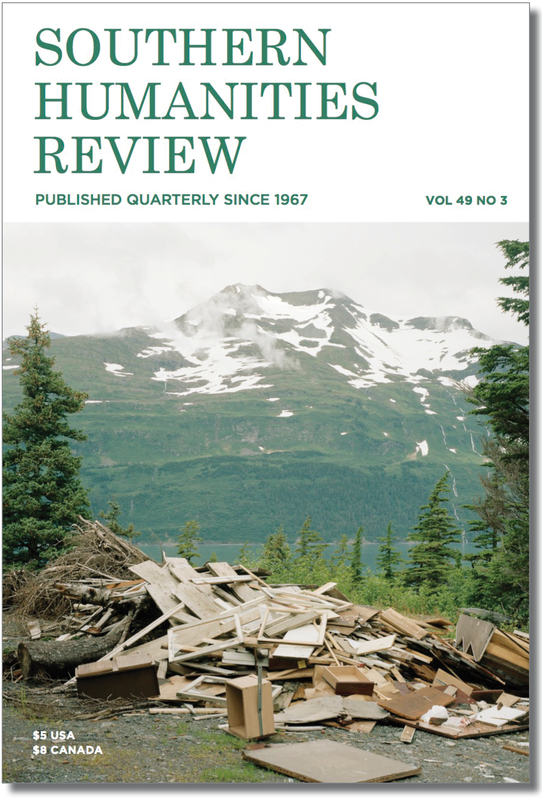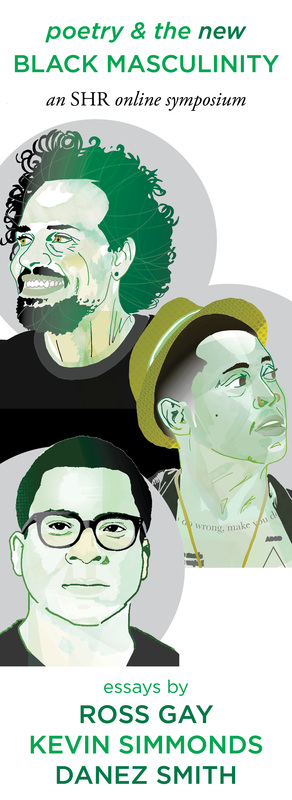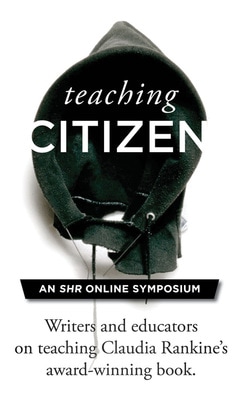|
Vertical Divider
We began with Langston Hughes’s 1921 award-winning poem “The Negro Speaks of Rivers” and the charge to write something in response. There was something in the invitation about nature poetry and how that seemed important, but otherwise the instructions were open-ended (perhaps scarily so). We asked poets of very different styles and sensibilities, only some of whom were already engaged with Hughes’s work: F. Douglas Brown, Jericho Brown, Katie Ford, Rachel Eliza Griffiths, Derrick Harriell, Dong Li, Sandra Lim, and Michael C. Peterson. We wanted to see what each of these writers would make. In both the individual poems and the group as a whole, we weren’t disappointed; the poems ask, reach, and posit literary relationship in phenomenally different ways.
What's new here is the assembling of responses to Hughes into one collection. But the impulse to respond to this particular poem is not unique or new. Hughes’s contemporaries got that ball rolling. In 1955, Arna Bontemps recorded and re-titled his 1926 poem “A Black Man Talks of Reaping” in a way that made its engagement with Hughes even more legible:
The nearly identical title declares a relationship with Hughes’s poem; moreover, Bontemps’s shift from “The” to “A” signals a point of difference (possibly dissent). Rather than a mythic figure embodying the Negro historical experience itself, Bontemps’s speaker is a single black man in a North American landscape whose relationship to rivers is one of proximate work: “I have sown beside all waters in my day.” Despite its biblically inflected language and imagery, Bontemps’s response poem is not about temporal transcendence; the fear of failure animates the venture of cultivation from line two to the poem’s end, with its final image of the “bitter fruit” gathered by the speaker’s children. It's little wonder that Bontemps wanted to make his conversation the with Hughes’s poem even more legible. In this collection, Derrick Harriell’s speaker announces “I’m done with magic and prayer.” Bontemps’s speaker implicitly announces that he, too, is done with those things—and also with simile and certain kinds of repetition. The river itself, so focal and incantatory in Hughes’s original, becomes simply the adjunct to a story of human work and painful subsistence; only when we understand these two poems as fundamentally proximate do we register this change as part of (perhaps even the core of) Bontemps’s story of deep suffering and loss.
The poets collected in Of Rivers can take for granted that readers know of their work's relationship with the Hughes poem, and because of this, some of their poems forego explicit signals of connection. The chapbook imaginatively sets each piece beside the inspiration poem. This is exciting and challenging because of what those juxtapositions ask us to notice. In her poem “The Sofa,” Medbh McGuckian writes, “If I could / Interest you instead in his large, gentle stares.” Part of what Of Rivers offers readers is that invited shift in attention. These responses to “The Negro Speaks of Rivers” mind different facets of Hughes’s poem and thus draw our attention to things we may have skimmed over or missed entirely. Some examples: Dong Li’s poem relocates Hughes’s patterned, phrasal repetition to an urban context. As the refrain of the poem increases in speed and frequency, “like the rivers” begins to feel addressed through Hughes rather than addressed to him. The intimate second person makes “like the rivers” feel prophetic. It seems we are in the midst of several “yous”—the poet, Hughes, and the imagined reader—all of whom share space and time. “you are coming through,” Li writes toward Hughes, but also towards and for any reader who will listen, who will remember and revivify Hughes’s voice with his or her own. Li’s “like the rivers,” in this sense, places itself in the tradition of Blake’s “Milton,” that famous poem in which one Englishman asked about another, “And did those feet in ancient time / walk upon England’s mountain’s green?” Likewise, when Chinese-born Li imagines Missouri-born Hughes walking in Harlem, he wishes to stand in his place, preserving in a New York minute a dexterous meeting of past and present. F. Douglas Brown approaches Hughes, the creator of the blues stanza, à la another new poetic form: Terrance Hayes’s “golden shovel” (itself a response to Gwendolyn Brooks), which uses the words of the inspiration poem along the response poem’s margin. But instead of doing what we might expect, Brown chose the words from “Dream Variations” to envoice both the speaker of “The Negro Speaks of Rivers” and Michael Brown. Brown uses the Black Lives Matter campaign and racial violence of the present to draw our attention back to the 1920s use of art as a tool in the struggle for civil rights, as well as the emergence of black working-class culture as a focus of and inspiration for African-American poetry. As Brown explained in an email, the irregular punctuation provides “some added space in the thinking of, or the unknowing of the circumstances the poem.” It also nods to other poets (particularly Hayes and Lyrae Van Clief-Stefanon). The words broken by hyphens, the :—, and the —:, signal the collective. Instead of Hughes’s single voice speaking about blackness and knowing, Brown creates a myriad of voices speaking in concert. Somehow it feels less like a revision and more like an unveiling of implied voices in Hughes’s original. Sandra Lim’s short poem “I DO NOT WISH TO LIE WITH MY OWN KITH AND KIN” asks us to think about ambiguity and denotation. The poem’s single sentence never explicitly clarifies what type of “lie” is undesirable for the speaker: prevarication or reclining. Instead, it winds us quickly through a double-negative that evokes Hughes’s concern with place and its uses (“It is not true / that it doesn’t matter / where you live”). Then the poem asks us to think about deracination, which the speaker finally calls “my little Apollo.” Lim’s poem is a riff in the vein of Bob Kaufman’s 1971 riff on Hughes in “I, Too, Know What I Am Not” that Kevin Young so deftly analyzes in his book The Grey Album. Kaufman’s poem opens up with what feels like an infinite list of what the speaker’s not (or what he refuses to be). Lim’s riff is compressed but also hinges on refutation; the negative desire is both confrontational and generative. The implicit connection with “The Negro Speaks of Rivers” makes the following reading of Lim’s poetic negation possible: Hughes’s poem operates in the manner of, and is to some extent about, translatio studii—the transfer of knowledge or learning from one geographical place and time to another. Hughes’s oracular speaker claims place and time in order to claim a large and important heritage for African Americans. Lim’s poem, too, investigates race and movement, focusing instead on displacement, which she creates with association and denotation. To “lie” is to recline or pause (implicitly in a particular place); “deracination” means to uproot or remove, particularly from a native environment or culture; Apollo is the Greek and Roman god of both poetry and prophecy. Read in tandem with the swift series of negations, the denotative story is of the energy provided by place, race, and uprooting. It is a poem about poetic self-deportation that perhaps, like Bontemps, challenges the universal and the prophetic in Hughes’s original. Where you live matters, Lim’s poem says—but not in the way you thought it did. Most of the poems in this collection have some things in common: they are specific, personal, and idiosyncratic—not magisterial, mythic, or universal. These response poems are about the unruly facts of the world, and they tend to distrust melody as a reliably unifying force. They also tend to energetically change or refine received poetic forms. It also seems important to note that none of these responses are list poems like Hughes’s original (even the one that announces itself as such). List poems aim to set things out obviously with, or explicitly without, hierarchy; a list poem’s order is made possible by its legible judiciousness. By contrast, these response poems pivot off of lists and other legible formal patterns in order to move us to different syntactical spaces. They are shape-shifting (and sometimes autobiographical) narratives that begin with a big problem and tend to resist finality. And as responses to Hughes, both individually and as a group, they are profoundly interesting. It would take many pages of prose to paraphrase what the Of Rivers poets accomplish with more eloquence. But it’s not just about editorial concision. Our list of examples is also short because part of the pleasure this collection offers is the chance to discover and trace those patterns of attention. We invite you to delve and mull and find—and hopefully also to delight. We hope you’ll think about closure—what a poem does and means when it ends. Stephen Dobyns suggests that the endings of successful poems catapult us back to their beginnings and cause us to meaningfully rethink those poems in their entirety. We hope this collection offers that kind of closure, both within and across the poems. We also hope it offers a chance to revisit and rethink “The Negro Speaks of Rivers” as part of an ongoing conversation about poetic inspiration—about opportunity, legibility, strategy, and emphasis. |
SELECTIONS FROM OF RIVERS APPEAR IN VOLUME 49.3
|
CURRENT ISSUE
|
CONTACT
|
DEPARTMENT OF ENGLISH
|






